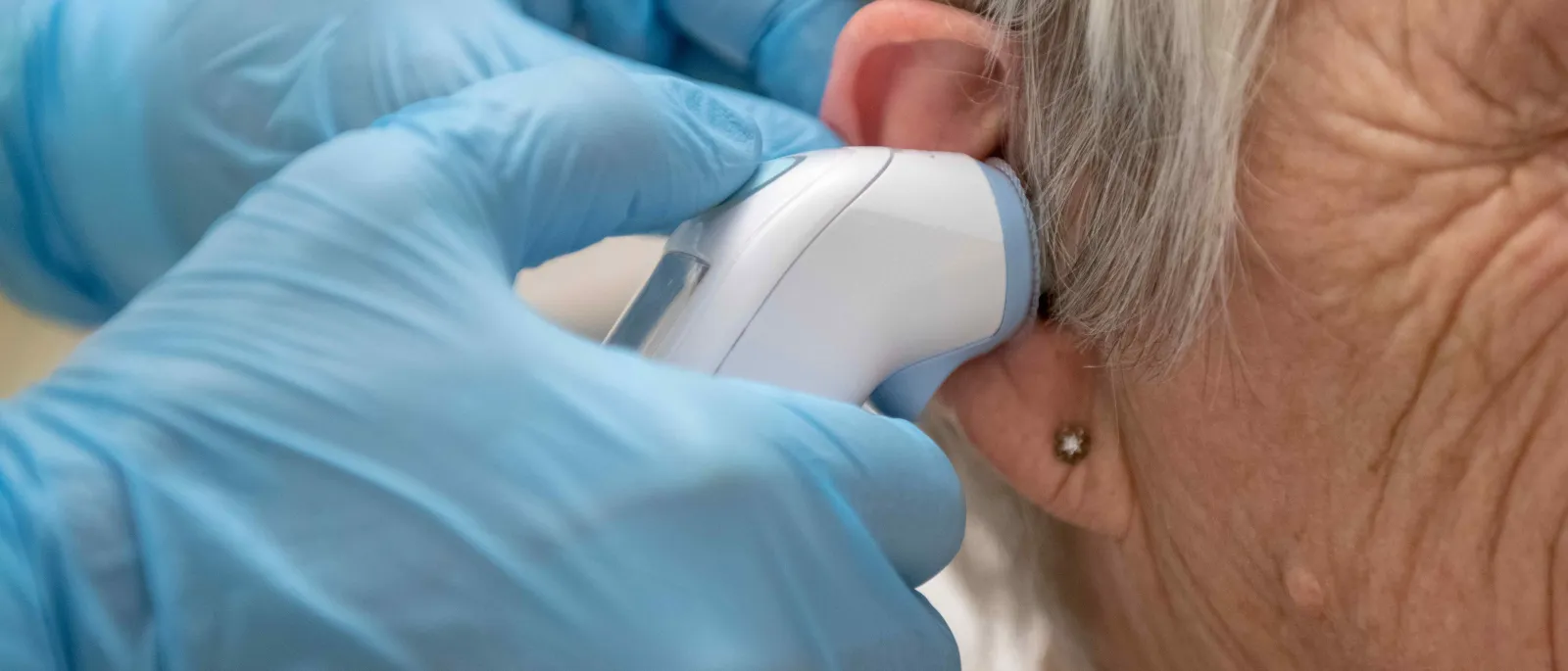Ear infections are most common in early life, with around 80% of children experiencing a case of acute otitis media (AOM). However, they're not limited to kids - adults can and do get ear infections as well. While they tend to be less frequent, they're still painful and can lead to complications without proper treatment. Left unresolved, that can mean hearing loss, recurring pain, and an increased risk of complications, in general, making early detection and proper care essential.
Whether you're dealing with an active infection or are just wondering how to avoid one, understanding common ear infection symptoms in adults and how to prevent ear infections is the first step.
Recognizing Ear Infection Symptoms in Adults
Ear infections in adults generally develop in the middle ear (otitis media) or the outer ear canal (otitis externa - also known as swimmer's ear). While symptoms depend on the location and severity of the infection, common ones include:
- Ear pain or discomfort (generally sharp and throbbing)
- Fluid discharge
- The feeling of intense pressure or fullness in the ear
- Muffled or reduced hearing
- Dizziness or balance issues
- Fever (in the case of more severe infections)
If you're experiencing any of those symptoms, particularly fluid discharge or ear pain with hearing changes, it's important to see an ENT specialist as soon as possible. When left untreated, ear infections in adults can lead to chronic infections and cause damage to your eardrum.
Common Causes of Ear Infections in Adults
If ear infections are most common among children, what can cause adults to develop them? Several factors can increase your risk of developing an ear infection, including:
- Allergies: Seasonal allergies can lead to inflammation and subsequent fluid retention
- Upper respiratory infection: These can block your Eustachian tubes, leading to fluid buildup
- Water exposure: Frequent swimming without properly drying your ears can introduce bacteria into your ear canal
- Smoking: Tobacco irritates your respiratory tract, increasing your likelihood of infection
- Ear trauma: Inserting objects into your ear, or even improperly using a cotton swab, can disrupt your ear's ability to defend itself
Ear Infection Treatment for Adults
When looking to treat an ear infection in adults, the right plan depends on the type and severity of the infection. Your ENT doctor will assess your condition and may recommend one or more of the following:
Antibiotics
Doctors prescribe antibiotics to kill bacteria, so if your ear infection is caused or exacerbated by a bacterial infection, oral antibiotics or antibiotic ear drops may offer relief.
When taking antibiotics for ear infection treatment adults, it's essential to finish the full course, even if your symptoms improve early on.
Pain Relief
Ear infections are often painful, so medications like ibuprofen and acetaminophen are often prescribed to manage discomfort and reduce inflammation. Warm compresses can similarly provide temporary relief.
Ear Drops
If the infection is in the outer portion of your ear, your ENT may prescribe medicated ear drops. These combine antibiotics with anti-inflammatory agents to reduce the pain and improve the condition over time.
Ear Cleaning (for Swimmer's Ear)
In some cases, your doctor may need to gently clean your ear canal to remove fluid or debris contributing to the infection.
In instances of recurring infections, an ENT may recommend imaging or a minor in-office procedure to reduce inflammation and encourage drainage.
How to Prevent Ear Infections
Don't want to worry about ear infection treatment? Prevention is key - especially if you're prone to infections or have a history of ENT issues.
Here's how to prevent ear infections before they start:
- Dry your ears: After swimming or showering, tip your head to each side to ensure water drains out
- Use earplugs when swimming: If you're prone to swimmer's ear, earplugs can help keep water out
- Avoid smoking: Both smoking and secondhand smoke can impair your body's immune responses and Eustachian tube function
- Manage seasonal allergies: Antihistamines and nasal sprays can combat the inflammation that contributes to fluid buildup
- Limit headphone use: Headphones often encourage bacteria buildup in your ears, so limit how often you use them and ensure you regularly clean them
- Get vaccinated: Flu and COVID-19 vaccinations can help reduce your risk of respiratory infections that can lead to ear issues
When to See an ENT for an Ear Infection
Persistent and targeted at-home treatments can sometimes be enough to combat an ear infection. However, if your symptoms last longer than a few days, recur regularly, or involve hearing loss, you'll want to consult with an ENT specialist.
You should also meet with a medical professional if you experience:
- Severe pain or drainage
- A fever that won't go away
- Balance or coordination difficulties
- A history of chronic infections or ear surgery
ENT specialists can perform a thorough assessment to identify the issue. Following that, they'll be able to determine whether further intervention (such as a long-term prevention strategy) is needed.
Visit the Experts at ENT of Georgia South
At ENT of Georgia South, we specialize in expert care for ear infections in adults, among other conditions. Whether you're experiencing discomfort or hoping to prevent chronic infections, our team of medical professionals has the expertise needed to bring you long-term relief.
Schedule an appointment with us today to speak to a specialist and get on the path of protecting your hearing health.

